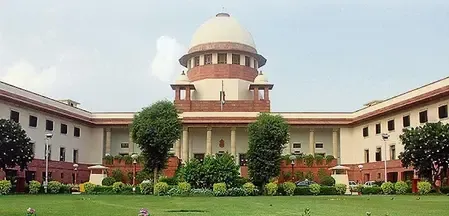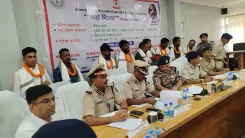Will the SC Mandate Comprehensive Sexuality Education in Schools?

Synopsis
Key Takeaways
- Supreme Court to review PIL for CSE implementation
- Transgender-inclusive education highlights gender diversity
- Current curricula lack essential content on gender identity
- Legal implications under the Transgender Persons Act
- Potential impact on transgender literacy rates in India
New Delhi, Sep 1 (NationPress) The Supreme Court has decided to review a public interest litigation (PIL) that calls for the NCERT and SCERTs (State Councils of Educational Research and Training) to adopt transgender-inclusive Comprehensive Sexuality Education (CSE) in educational institutions nationwide.
In a notice issued, a bench consisting of Chief Justice of India (CJI) B.R. Gavai and Justice K. Vinod Chandran requested feedback from the Centre, NCERT (National Council of Educational Research and Training), and the state governments of Maharashtra, Andhra Pradesh, Telangana, Punjab, Tamil Nadu, and Karnataka regarding this issue.
The petition, brought forth by a Class 12 student, pointed out that despite the legal requirements under the Transgender Persons (Protection of Rights) Act, 2019, and directives from the Supreme Court, educational curricula lack structured content that addresses aspects of gender identity, gender diversity, and the differences between sex and gender.
The petitioner's analysis of textbooks from various states, including Maharashtra, Andhra Pradesh, Telangana, Punjab, Tamil Nadu, and Karnataka, revealed a significant absence of relevant content, with Kerala being a partial exception.
This omission is argued to violate Articles 14, 15, 19(1)(a), 21, and 21A, while also undermining the Directive Principles outlined in Articles 39(e)-(f), 46, and 51(e), thus reinforcing stigma and perpetuating institutional erasure.
Furthermore, the petition indicated that the transgender literacy rate in India stands at only 57.06%, which is considerably lower than the national average of approximately 74%, showcasing the effects of social exclusion and lack of policy action.
With 23 states and Union Territories relying on NCERT textbooks either fully or largely, the lack of transgender-inclusive content poses serious implications for constitutional adherence and social equity, as argued in the petition, which was filed by advocate Anil Kumar.
The petitioner, Kaavya Mukherjee, has requested the Supreme Court to instruct the NCERT, SCERTs, and other relevant bodies to integrate scientifically accurate, age-appropriate, and transgender-inclusive CSE into the core curricula and textbooks across school systems, aligning with constitutional provisions, legislative requirements, and established judicial precedents.





